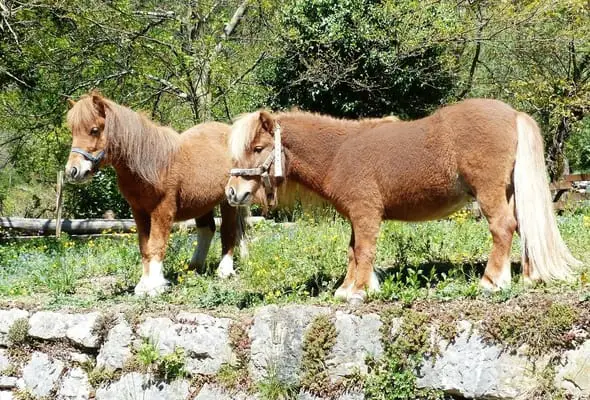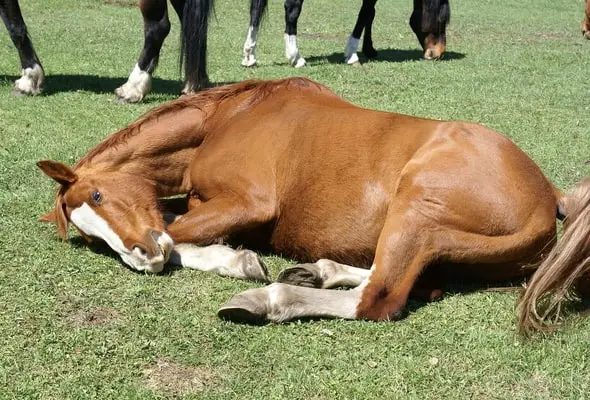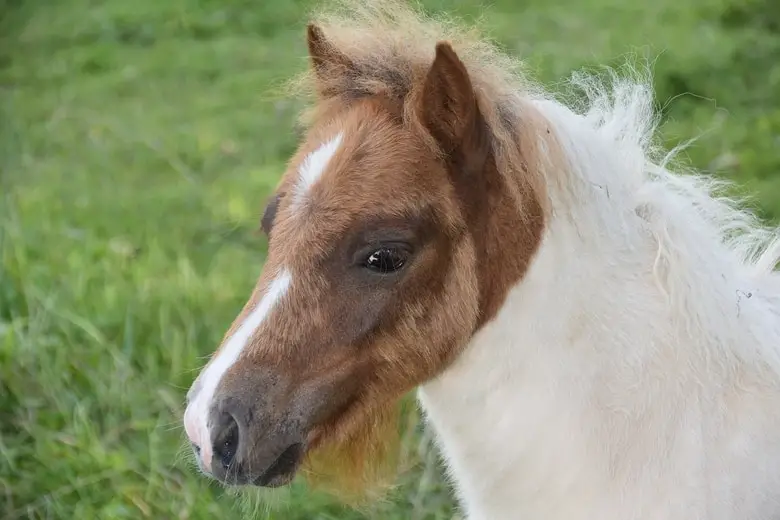For a horse owner, the birth of a foal is a thrilling and highly-anticipated event. A typical horse pregnancy lasts around eleven months but can be up to 370 days. During this time, diligent owners must take extra care regarding their mares’ nutritional needs.
Foals in utero have high energy, protein, and mineral requirements, and calorie demands for a pregnant mare are 28% higher. In addition, pregnant mares can be picky eaters and may reject food even when their calorie needs are at their peak.
With such a prolonged and challenging gestation period for just one baby, many have wondered, can a horse have twins?
Can a Horse Have Twins?
Horses can have twins, but at great risk to themselves and their offspring. Horses typically have a 1 in 10,000 chance of conceiving twins, and cases of twins surviving are even rarer. Usually one or both foals die in the womb, during labor or from health issues thereafter.
Twin pregnancies occur when mares double ovulate, meaning they release two eggs in the same cycle. When a twin pregnancy occurs, veterinarians will usually abort one of the twins to preserve the life of the mare and remaining foal alike.
The majority of twin pregnancies that are not reduced to a single pregnancy culminate in miscarriage, stillbirth, or weak and nonviable foals. While cases of twin pregnancies bearing healthy offspring have occurred, they are the extreme exception rather than the rule.
What Causes Twins in Horses?
In most cases, mares produce one ovum from a ripened follicle every 21 days throughout their breeding season. If the ovum is fertilized, the mare becomes pregnant.

Some mares yield two follicles and release two ova during a cycle, and if both are fertilized, a twin pregnancy can occur. Sperm from a fertile stallion can survive in the reproductive tract for several days. Twins can therefore develop from ovulations that occur on the same day or several days apart.
The phenomenon of double-ovulation is more common in certain breeds, particularly Thoroughbreds, Warmblood and Draft Horse types.
Mares have a higher chance of producing more than one ovum if they are not actively nursing a foal, if they have not given birth in the previous season, or if they have a history of twin pregnancies.
An early diagnosis is the key to successfully managing a twin pregnancy in a horse. Twin pregnancies can be determined as soon as twelve days after ovulation.
What Are the Odds of a Horse Having Twins?
The conception of twins is a mercifully rare occurrence in horses, at a rate of about 1 in 10,000. While the idea of twin foals sounds adorable, the unusual nature of this circumstance is a blessing in disguise.
Mares are not biologically equipped to carry twins. Miscarriages and stillbirths occur in most cases of twin pregnancies because there simply isn’t room for two foals inside the womb. Often one or both foals receive inadequate nutrition and starve inside the mother’s body.
As mentioned in previous sections, Thoroughbreds, Warmbloods, and Draft horses have the highest rates of multiple ovulations and therefore, are more susceptible to twin pregnancies.
Mares who have multiple ovulations during one cycle have a higher chance of having multiple ovulations during their subsequent cycles.
As such, mares who have a history of twin pregnancies also have a higher likelihood of conceiving twins in the future, and must be closely attended to and evaluated at the earliest possible stage of pregnancy.
Is Having Twins Bad for a Horse’s Health?
Even if a mare miraculously manages to carry a twin pregnancy to term, the risks of birth and subsequent health issues are considerable. One of these is dystocia, which refers to a prolonged and taxing birth experience.

The longer a birth takes, the higher the risk to the foal of oxygen deprivation. A mare experiencing dystocia also faces a significant risk of life-threatening infections.
Another complication is that of twins becoming stuck in the birth canal together, a situation which would be near-impossible to resolve without immediate veterinary intervention.
After the delivery of twins, a mare is more likely to retain fetal membranes than they would be after a regular birth. This can have disastrous consequences for their health.
Retention of fetal membranes may lead to metritis, which is severe inflammation of the uterus, or to peritonitis, which refers to inflammation of the abdominal lining. Crippling pain and life-threatening fever can result.
Can Horses Have Triplets?
The odds of a horse conceiving triplets are about 1 in 300,000. Taking into account how dangerous even a twin pregnancy and birth can be to the mare, it should provide some comfort that triplet foals are so incredibly rare.
A report in a public veterinary database outlined the case of a mare giving birth to live triplets, unattended, at approximately 300 days gestation.
All three of the foals were undersized and required immediate hospitalization. The smallest of them died at four days old, while the second was euthanized due to an inability to recover from an injury incurred during birth.
Shockingly, the third foal managed to survive, although it remained undersized when it was last monitored at the age of one year. Triplet foals remain so unusual that no other case studies are readily available.
It is vitally important that mares be monitored closely during their breeding season in order to prevent problems caused by undetected twin and triplet pregnancies.
Conclusion
As we’ve outlined, horses can have twins. Double fertilizations do occur in cases where a mare has experienced double ovulation. However, twin pregnancies are inherently risky and usually do not result in the successful delivery of healthy offspring.
When a twin pregnancy is detected by a veterinarian, they will abort one of the fetuses in order to give the remaining foal, and the mare, the best chance of survival.
A mare will face life-threatening complications as a result of being in labor with twins, and foals who survive the birth will, at the very least, be severely stunted. It is imperative that horses are monitored closely during their breeding season, to prevent the possibility of twin pregnancy.

